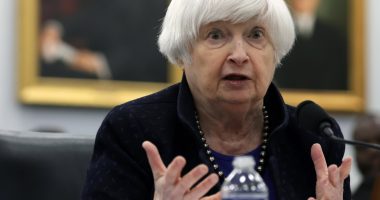
The increase in wealth has been seen from stronger retail participation, larger investments into the Indian stock markets, and gold and property purchases.
Sopa Images | Lightrocket | Getty Images
Rising disposable incomes are set to power India’s consumption story, further boosting the country’s consumer sector that is fast becoming a key driver for economic growth.
India, which has relied heavily on business-to-business services and manufacturing to fuel growth, is on track to become a more consumption-focused economy, said Abhishek Malhotra, partner at McKinsey & Company’s Mumbai office.
His comments came on the back of a Goldman Sachs report last week that predicted around 100 million people in India will become “affluent” — earn an annual income exceeding $10,000 — by 2027.
There is a great desire to spend on travel, jewelry, eating out, among other things, with discretionary spending in the country on the rise, Malhotra told CNBC in a Zoom interview.
Currently, 60 million people in the world’s fifth-largest economy earn more than $10,000 — around 4% of India’s working age population — according to the report released last week. The number was just 24 million in 2015.
“When you have a lower income, most of your money goes into food and housing … Now that those have been taken care of, there is leftover discretionary spending,” Malhotra said, adding that consumer sectors such as travel, jewelry, and services will see significant growth in the next two decades.
The country’s consumer market is set to become the world’s third-largest by 2027, as the number of middle- to high-income households rises.
About 33% of India’s 1.4 billion people are estimated to be aged between 20 and 33 years, according to data from BMI, which is driving global firms to set up and expand operations in the country.
Pedestrians walk past a Tata Starbucks coffee shop in Mumbai, India, on Saturday, Nov. 5, 2016.
Bloomberg | Bloomberg | Getty Images
For instance, Tata Starbucks — a joint venture company between Tata Consumer Products and Starbucks Corporation — announced in January that it will have 1,000 stores in India by 2028.
The coffee chain currently operates about 400 stores across 54 Indian cities. Other international chains such as Tim Hortons and Costa Coffee have reportedly been striving to gain a foothold into the Indian market.
Rising incomes are also reflected in higher domestic inflows into Indian equities, and the country’s market cap has risen by over 80% in the last three years, with India trumping Hong Kong in December to become the world’s seventh-largest stock market.
Besides growth in investments, Goldman anticipates a sharp increase in gold and property purchases.
Property prices in the South-Asian nation have shot up by more than 30% from financial year 2019 to 2023, compared with just a 13% increase from financial year 2015 to 2019, on the back of higher housing demand.
Higher incomes have also led to credit cards spending more than doubling in the last year compared with 2019, Goldman said.
The report showed that there are around 90 million credit cards being used in India, with some of the people earning more than $10,000 holding more than one card. There were just 50 million credit cards in 2019.
“There is a focus towards plastic currency and digitization of payments in India … And the young population is the key driver of credit card growth,” said Kranthi Bathini, equity strategist at WealthMills Securities.
“The youth is confident in India’s growth story, so that’s where this participation is coming from,” Bathini told CNBC via telephone.
Promising plays
Stocks of Indian travel companies such as MakeMytrip and InterGlobe Aviation (IndiGo) have both made gains since the beginning of the year, making them Goldman’s top picks from the travel sector.
The world’s most populous country’s spending on travel is set to be the fourth highest globally by 2030, largely due to the growth in middle-income households.
To meet booming travel demand, Indian carriers have been placing record aircraft orders with Akasa Air on Thursday ordering 150 Boeing 737 MAX planes.
Indiana are projected to take 5 billion leisure trips by 2030, with 99% of the travel within the country.
The Indian Hotels Company, which owns 263 properties in the country, stands to benefit from the surge in domestic travel, Goldman said.
Jewelry firms such as Titan and Kalyan are also among Goldman’s top picks, with both stocks up 2% and 9%, respectively, so far this year.
Goldman Sachs said food operations such as food delivery company Zomato will benefit from growth in India’s consumption sector.
Debarchan Chatterjee | NurPhoto | Getty Images
In food delivery, Goldman prefers names such as Zomato, Devyani, Sapphire and Phoenix Mills.
“Not only do these benefit from the rise of ‘Affluent India’, but we also see these as high quality businesses with strong competitive advantages, proven track records of past performance and market leadership within their segments,” it said.
“This gives us greater confidence that they will be able to hold their competitive position within these high growth categories.”
— CNBC’s Naman Tandon contributed to this report.
Read More: World News | Entertainment News | Celeb News
CNBC










